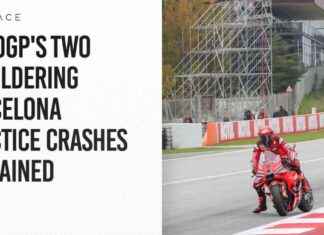French President Emmanuel Macron justified his choice on Friday to reshuffle the cabinet of ministers in a measured way, arguing that he favored “continuity and efficiency” and promising a “deep response” to the unrest that has rocked the country.
Macron, who spoke this Friday in a televised speech to present the first Council of Ministers of the remodeled government the day before, “clearly” stated his “trust” in Prime Minister Elisabeth Borne.
“I have opted for continuity and efficiency for the times that await us,” argued the head of state to justify his choice, halfway between a simple adjustment and a change of government.
While several civil society ministers leave the Government, the important ones (Interior, Justice, Finance, Armed Forces, etc.) remain. Although eleven of the 41 ministers have changed, the general structure of the government remains unchanged.
Among the main changes, François Braun, an emergency doctor, gives up his post at the Ministry of Health to Aurélien Rousseau, former chief of staff to the Prime Minister and a specialist in health policy.
Gabriel Attal, a rising star in the presidential party, has been promoted at just 34 years old from the Ministry of Public Accounts (budget) to the very sensitive Ministry of Education, with the aim of “re-situating respect for authority and fundamental knowledge at the heart of the school”.
Marlène Schiappa, former Secretary of State for Social and Solidarity Economy and Associative Life, criticized for crimes of embezzlement in her management of the Marianne Fund, left the Government.
In the end, after intense negotiations between a prime minister eager for change and a president more inclined to stability, the team seems somewhat more politically savvy, as the number of ministers or state secretaries who have never been elected drops from 13 to 9, the lowest ratio in Macron’s tenure.
The circle of the head of state declared that “in each of these positions” affected by the remodeling “it is a question of having a stronger incarnation, that is to say, an ability to apply the reforms more quickly and effectively”.
Macron had promised to draw up his own balance of the “100 days” before Sunday, decreed on April 17 to find a way out of the crisis caused by a pension reform that delays the legal retirement age from 62 to 64 years.
This reform, adopted thanks to a procedure that allows a text to be approved without a parliamentary majority, clashed for months with a united union front and strong street protests.
Among the projects planned at the time: drawing up a new “active life pact” or “strengthening control of clandestine immigration.”
Meanwhile, however, France has been rocked by several nights of urban riots, following the death of 17-year-old Nahel, shot dead by a policeman during a roadblock.
On Friday, Macron promised a “comprehensive and deep response” to the violence, referring to a “risk of fragmentation (and) deep division of the Nation.” This will “structure the government’s work in the autumn,” he said.
However, the French President called for a “demanding framework” to be established and for public finances to be “ordered” in the draft budget for 2024, which will reach Parliament in the autumn, where debates are expected to be difficult. What is at stake is “France’s credibility in Europe,” he added.
However, Emmanuel Macron’s main problem has not changed: his government still does not have a majority in the National Assembly and the opposition is not willing to accompany him.
According to the criteria of The Trust Project







